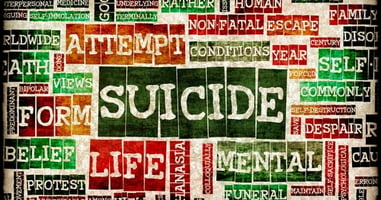A Psychiatrist Reflects on the Impact of Patient Suicides
 |
As a clinician who has had patients who have died by suicide, Myers took the opportunity of Williams' widely discussed suicide to share the following reflections and insights with psychiatrist colleagues.
- Don’t forget why we chose psychiatry as our field. Most applicants to psychiatry residency describe in their personal statement how they have been affected by someone they know struggling with a mental illness. They want to alleviate suffering, make a difference. But most have never talked to a clinician who has shared his or her story about losing a patient to suicide. We must never forget the anxiety in our trainees, including the denial, about one of their patients dying by suicide.
- Suicide is a unique form of death. Losing a patient to suicide is very different from losing a patient to diabetes or cancer. Our bereavement, and the mourning of the decedent’s loved ones, are distinctive. We wrestle with a host of emotions—shock or surprise, confusion, loss, sadness, anger, fear, failure, guilt, and almost always, shame. Shame is why so many psychiatrists do not easily discuss or write about their experiences. Most clinicians struggle with varying amounts of responsibility and self blame. I know this first hand from attendee disclosures at my courses and clinical case conferences on losing patients to suicide at APA annual meetings.
- Suicide is a fundamental element of our work. I believe we have a moral imperative to diagnose and treat the most seriously ill and dangerously suicidal patients. Although “cherry picking” exists among our ranks, I pose this question. Would an oncologist ever state “Sorry, I don’t accept patients with metastatic disease”? In fact, when I have lost patients to suicide who have been living with protracted treatment-resistant mood disorders and cascading losses and demoralization, I feel like an oncologist. My mantra is “My patient has died of his disease. He fought a long and tough battle. He’s now at peace.”
- Reach out to the grieving family. I have always believed that our humanism should eclipse our fears of legal consequences, namely being sued. Research shows that the chances of being sued are decreased (not eradicated) by being "physicianly" to our patient’s loved ones.
- Do not isolate. We must take care of ourselves in whatever way necessary, including talking to our families and colleagues. Excellent resources are available from the American Association of Suicidology (www.suicidology.org) and the Physician Litigation Stress Resource Center (www.physicianlitigationstress.org.
To read more of Myers' comments, click here.





